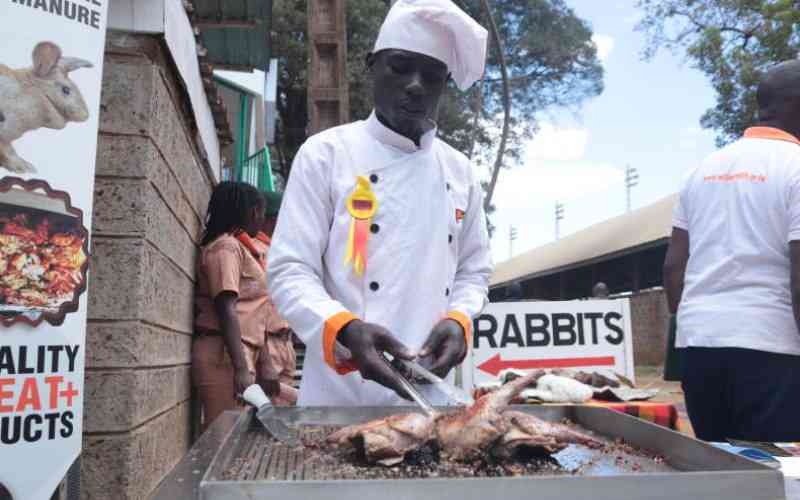×
The Standard e-Paper
Home To Bold Columnists

Joseph Ngatia a butcher at Millimag Rabbits preparing rabbit meat during the annuals ASK show that was held at the Jamhuri showgrounds. [Silas Otieno, Standard]
Though it has high potential, the demand for rabbit meat is still significantly low. However, there are some farmers who have seen the potential and are capitalising on it. Millimag Rabbits proprietor Justin Magiri is eyeing to expand his colony of rabbits from the current 2,000, as he pushes to meet the growing demand of rabbit meat locally.